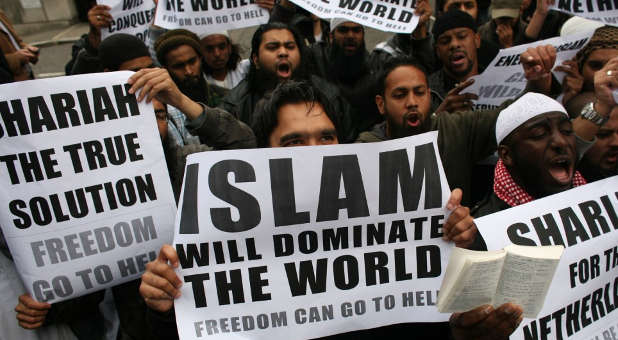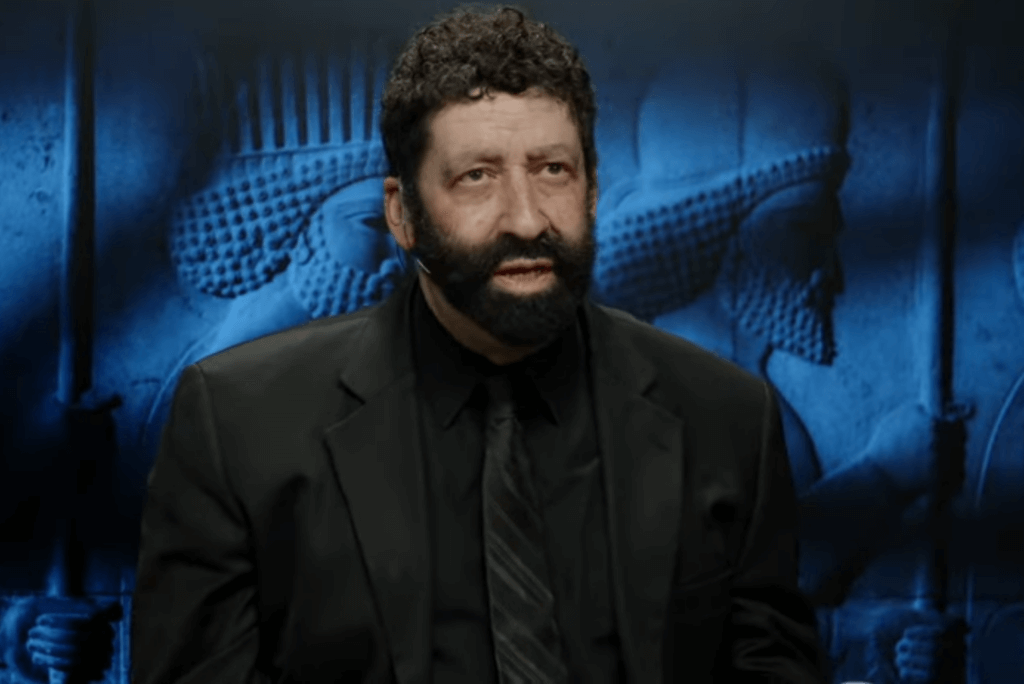While Islamic State is wreaking havoc in Iraq and Syria, its ambitions do not stop there. Moreover, several world leaders are saying it is one of the biggest threats they are facing. But exactly how does Islamic State fit into the global picture of Christians under pressure for their faith worldwide?
- What is Islamic State?
- How does Islamic State fit into a process of global Islamization?
- How does Islamic State fit into the picture of Christians under pressure for their faith worldwide?
- Why is Islamic State so successful?
- How might Islamic State advance in the region?
- What does this mean for Christians in the region and worldwide?
1. What is Islamic State?
Islamic State (IS) is a group of Sunni militants who have set up a self-pronounced Caliphate at the end of June 2014. The group stems from radical groups formerly affiliated with al-Qaeda and aims at setting up a strict form of Sharia law in its state. According to the UK-based Syrian Observatory of Human Rights, Islamic State has 50,000 fighters in Syria and 30,000 in Iraq. Many of Islamic State’s fighters are from the region but, for example, an estimated 11,000 to 12,000 jihadis are said to have come to Syria from abroad, of which about 3,000 are from Western countries, according to New York-based Soufan Group and the London-based International Centre for the Study of Radicalization. Especially after the declaration of the Caliphate, the number of foreign jihadis rose considerably, they say.
2. How does Islamic State fit into a process of global Islamization?
Islamic State is not an isolated “lone wolf.” It is an integral part of a well-established Islamist spectrum. This Islamist spectrum bridges into mainstream Islamic groups who cherish the same key concepts, even though they often do not actively wish to push them to their extremes. That is what makes Islamic State so dangerous.
Islamic State is a typical example of ‘violent rejectionists’, the most radical expression of Islamism. Islamism can be defined as “forms of political theory and practice that have as their goal the establishment of an Islamic political order in the sense of a state whose governmental principles, institutions and legal system derive directly from the Shariah.”
Violent rejectionists, often referred to as jihadists, are individuals and networks that, often linked to or inspired by al-Qaida, reject participation in the democratic system and use violence to advance their goals.
The other two expressions of Islamism are the “non-violent rejectionists,” such as Salafists, and the “participationists,” such as the Muslim Brotherhood.
According to Lorenzo Vidino, Senior Fellow at the Centre for Security Studies ETH Zurich “Non-violent rejectionists are individuals and groups such as Salafists and Hizb ut-Tahrir which openly reject the legitimacy of any system of government not based on Islamic law, but do not, at least publicly and openly, advocate the use of violence to further their goals.”
He sees “at the bottom of the Islamist pyramid the numerically most significant component of political Islam in Europe: the Muslim Brotherhood and other ‘participationist’ Islamic Movements. Participationists are individuals and groups which adhere to that strand of Islamism that advocates interaction with society at large, both at the micro-level through grassroots activism, and at the macro-level through participation in public life and the democratic process,” explains Vidino. “Unlike rejectionists”, he says “such organizations have made a conscious decision to avoid unnecessary confrontation and have instead opted for a clever and flexible policy of engagement with the European establishment.”
So while we need to recognize that Islamic State, as “violent rejectionists,” are at one end of the Islamist spectrum, that spectrum reaches from there into the more “participationist” groups, which are much more identifiable within European and Western democratic societies.
3. How does Islamic State fit into the picture of Christians under pressure for their faith worldwide?
The regime of Islamic State is the strongest possible expression of Islamic extremism, which is the most global ‘engine’ of persecution. All people under this regime are subjected to an absolute application of Shariah law. This is done by an excessive use of violence, which adherents believe is sanctioned by the Quran.
The evolution of the persecution pattern driven by IS has been typical for Islamic extremism, although it developed very fast. Typical are the extremely high levels of pressure for Christians (and other non-Muslims) in all spheres of life, and the extremely high level of violence. Once IS has established itself, the high level of violence should, in theory, drop because Christians will either have been killed, have fled or have conformed to a hard-core ‘dhimmi’ contract, by which they pay a ‘protection tax’ and are treated as second class citizens.
The contract is an integral part of traditional Islamic sharia law dating back to medieval times and requiring non-Muslims, in this instance Christians, to pay protection money which only allows them to gather for worship in churches.
Under the dhimmi contract, public expressions of Christian faith are not allowed. These prohibitions include: Christian wedding and funeral processions; ringing of church bells; praying in public and scripture being read out loud for Muslims to hear; Christian symbols, like crosses, cannot be displayed openly; churches and monasteries cannot be repaired or restored irrespective if damage was collateral or intentional; and Christians are also not allowed to make offensive remarks about Muslims or Islam. The dhimmi contract also enforces an Islamic dress code, like the veiling for women, and commercial and dietary regulations, including a ban on alcohol.
Muslims who convert to Christianity, though, would undoubtedly be killed.
4. Why is Islamic State so successful?
Currently, Islamic State holds an area as large as the country of Jordan. The advance of Islamic State through Iraq did not come as a big surprise. It was a time when the parliament was preoccupied with forming a new government after the elections and when the army was demoralized due to low salaries and previous Islamic State attacks. In this vacuum, IS seemingly could march to Baghdad without real opposition.
Lastly, another factor to take into account is the lack of affirmative action from the West until now. In the time it took for Western political leaders to determine a strategy and take action, Islamic State had succeeded in taking over considerable parts of Iraq and Syria and taking root in the region in a nation building project that seems to sketch the outlines of a truly Islamic ‘Reign of Peace’.
5. How might Islamic State advance in the region?
For the near future, however, it is likely that Islamic State will experience difficulties expanding further south in Iraq, since this area is majority Shi’ite. The Shi’ite population will not accept Sunni Islamic State as have done their Sunni counterparts in the north west of the country. Moreover, Iran will not allow Islamic State to touch Shi’ites and approach Iran. Furthermore, the USA and a number of allies have stepped up their interventions to hamper IS after the beheadings of three Westerners and the threat of the same fate for a British IS captive.
Nevertheless, hindering Islamic State’s advancement in Iraq might actually trigger it to open up new horizons in the region, for example in Jordan and Lebanon. Already, Islamic State elements are present in those countries, shown by the IS murders of two Lebanese soldiers and a pro-IS rally held in the Jordanian city of Ma’an at the end of June.
It turns out that Islamic State is not only holding its ground but also has ambitions going beyond the Iraqi and Syrian borders. This was indicated by IS’ previous name: ISIL, the Islamic State of Iraq and the Levant, which covers Syria and Iraq but also Jordan, Lebanon and Israel, including the Palestinian Territories. This region seems to be Islamic State’s first priority. Nevertheless, Islamic State is also making clear that it wants the caliphate to reign over the entire globe. This is expressed by the name change to IS, meaning ‘Islamic State’, which exceeds geographical boundaries.
6. What does this mean for Christians in the region and worldwide?
Where Islamic State has gained power, their reign of terror is driving all Christians and other minorities out. Before Islamic State began its rampage, about 3000 Christians had been living in Mosul, down from 35,000 after the 2003 war. Now, there are virtually no Christians left. The mainly Christian town of Qarakosh has been abandoned as well, along with other villages; the last Christians have left the northern town of Bartella. Tens of thousands of Christians have become internally displaced, fleeing to the Kurdish region, with cities like Erbil and Dohuk taking in thousands of them. A Christian mother voices the feelings many Christians are sharing: “If we stay, this will happen over and over again. First we wanted to stay in Iraq, it’s our home, we love this land, but it’s too much. We can’t live like this anymore.”
But what is perhaps even more worrying is what many of them take with them. While fleeing their homes and leaving behind everything but the clothes on their backs, Christians—adults and children alike—take with them fear. It is a fear that haunts their days and fuels nightmares. Children wake up screaming in the night: ‘IS is coming, IS is coming!” It is a fear based on reality. In its efforts to set up and maintain a pure Islamic caliphate, Islamic State is using all means necessary, including the use of extreme violence. Affected and targeted are the majority Muslims, but also non-Sunnis, such as Shia Muslims, Yazidis and Christians. Islamic State itself has made no secret of its intentions, as is shown by a statement of IS after conquering regions where large communities of Christians had been living for hundreds of years: “We offer them three choices: Islam, the dhimmi contract (involving paying a security tax called ‘jizya’), and if they refuse this they have nothing but the sword.”
Moreover, the IS movement has a strong potential to spread beyond Iraq and Syria through the foreign jihadis. Jihadis are returning to their home countries and there are real fears they’ll continue to spread their ideas or actions there. These fears already came true in a shooting attack at the Jewish Museum in Brussels on May 24, leaving four dead. The attack was carried out by a French jihadist who had returned after spending one year in Syria. It is a realistic perspective to expect that more returned jihadis will turn against Christian, Jewish or Western influences in Europe and worldwide. Additionally, in their efforts to curb the travel of jihadis to Iraq and Syria, (as well as their possibly radicalized influence in their home countries), governments could be in danger of overreacting, thus hindering the freedom of religion or expression of Muslims too much. That could create a vicious cycle of frustration and resentment, which may fuel further violence against these Christian, Jewish or Western influences.
In the midst of this chaos, fear and danger, there are sparks of hope. Confronted with a large number of refugees, Christians in northern Iraq have taken on the task of taking in refugees and setting up relief. Church leaders are taking the lead to inspire church members to help. They try to look to the future and see the importance of caring for the children. For example, child-friendly spaces are set up in tents and available rooms to give children a place to play and have fun.
Even though the recent crisis is the latest in decades of fighting and war and people despair, a number of Christians are rediscovering what it means to hold on to their faith in Christ and to receive God’s peace in their hearts and minds. Also, some Muslims have converted because the only people helping them were Christians; others have become disgusted with Islam because of Islamic State’s atrocities. And maybe, the small number of completely disillusioned and returning jihadis could be a drop in the ocean, to eventually counterbalance the appeal of Islamic State. For instance, one such man, a Syrian, spoke to the BBC on 16th Sept, and gave insights into how Islamic State operates.
See an error in this article?
To contact us or to submit an article






















